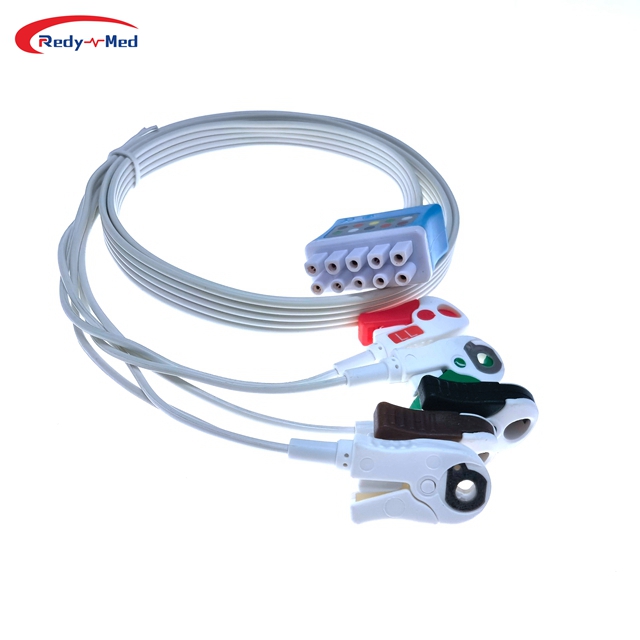
- Home > News > Industry News
The importance of ECG cables in the medical industry
2023-08-03 18:01:50
Ensuring Accurate Diagnostics and Patient Safety

Electrocardiography (ECG) is an essential tool in the medical industry for diagnosing and monitoring various heart conditions. However, the accuracy and reliability of ECG readings heavily rely on the quality and functionality of ECG cables.
Relaying precise electrical signals
ECG cables act as a crucial link between the patient and the ECG machine. These cables are responsible for transmitting the electrical signals produced by the patient's heart to the ECG machine for analysis and interpretation. The design and construction of ECG cables are optimized to ensure minimal signal loss and interference, resulting in accurate and artifact-free readings.
Designed with shielded wires and high-quality connectors, ECG cables effectively minimize electromyographic (EMG) and radiofrequency interference (RFI) that can distort the original ECG signals. Such interference can potentially lead to misdiagnosis and incorrect treatment, posing a risk to patient safety.
Enhancing patient comfort and mobility
ECG cables are often attached to patients for extended periods, requiring them to be comfortable and non-restrictive. The materials used in the construction of ECG cables are gentle on the skin, ensuring patient comfort and reducing the likelihood of skin irritations or allergies.
Furthermore, modern ECG cables incorporate lightweight and flexible designs, allowing patients to move freely while undergoing ECG monitoring. This mobility is particularly crucial for patients who require continuous monitoring, such as those in intensive care units or ambulatory settings.
Improving efficiency and workflow
ECG cables play a significant role in improving workflow efficiency within healthcare facilities. These cables are designed to be easily and securely connected to the ECG machine, minimizing setup time and reducing the chance of connection errors.
Additionally, some advanced ECG cables incorporate digital technology that enables seamless integration with electronic medical record (EMR) systems. This integration streamlines the documentation process by automatically transferring ECG readings to the patient's electronic chart, eliminating the need for manual data entry and reducing the risk of transcription errors.
Conclusion
ECG cables are of utmost importance in the medical industry, ensuring accurate diagnostics, patient safety, and overall efficiency. By relaying precise electrical signals, enhancing patient comfort and mobility, and improving workflow, ECG cables contribute significantly to the effectiveness and reliability of crucial cardiac monitoring procedures. Investing in high-quality ECG cables is essential for healthcare providers to deliver superior care and promote positive patient outcomes.
Get the latest price? We'll respond as soon as possible(within 12 hours)




